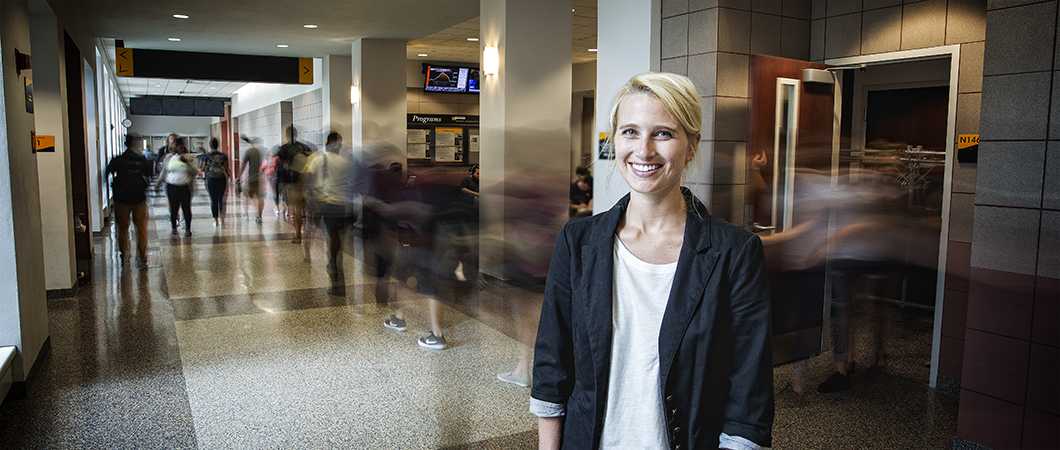Graduate Student Spotlight: Ash Evans

PhD student in Rhetoric and Composition
Update: Congratulations, Ash! She is now a visiting assistant professor of English at Pacific University.
Dissertation: Expanding Composition Pedagogies: A New Rhetoric from Social Media
Social media permeates our culture, including so much of the writing that students do in their daily lives. Using this writing in the composition classroom makes learning relevant and practical for students. Turning this writing into a reflective process helps them become more critical thinkers, thoughtful readers, and capable writers in all contexts, digital and non-digital.
I hope students see the writing they do on social media as complex not just because they receive ‘likes’ or have a lot of followers, but because they have consciously analyzed the best possible way to deliver a message. In the composition classroom, students practice delivering messages by engaging in critical thinking, learning about audiences, and situating messages within appropriate communities. I want composition students to do all of this, but I also want them to bring their social media knowledge to this process, and to gain a sophisticated, even playful awareness of how the affordances of the media allow them to communicate. For example, many students understand that rhetorical practices shift because of digitality; by blending words, video, text, images, emojis, and audio, the medium becomes pivotal to their composing processes online. Because they can see this so readily in digital environments, they can use that awareness to begin to understand the complexities of many other kinds of writing.
My dissertation examines how the field of Rhetoric and Composition can use social media to give students a more sustainable rhetoric for all writing contexts. Students especially seem to struggle when writing academic essays. After all, writing in a Word document for a somewhat nebulous audience with very little feedback is much harder than posting an update on Facebook and receiving multiple likes, shares, and comments within minutes. Cultivating social media habits into purposeful writerly choices will help students develop an expanded rhetorical repertoire and the ability to navigate many other forms of media too.
My chapters explore classical and contemporary understandings of medium, audience, ethos, context, and purpose, and I ‘revise’ these concepts—with the help of UWM students—to provide a theory of rhetoric that responds to the writing environments students encounter in the twenty-first century. As a whole, my project encourages the field of Rhetoric and Composition to address the fast-paced, digital lives of students while still emphasizing the value of long-form, academic writing.